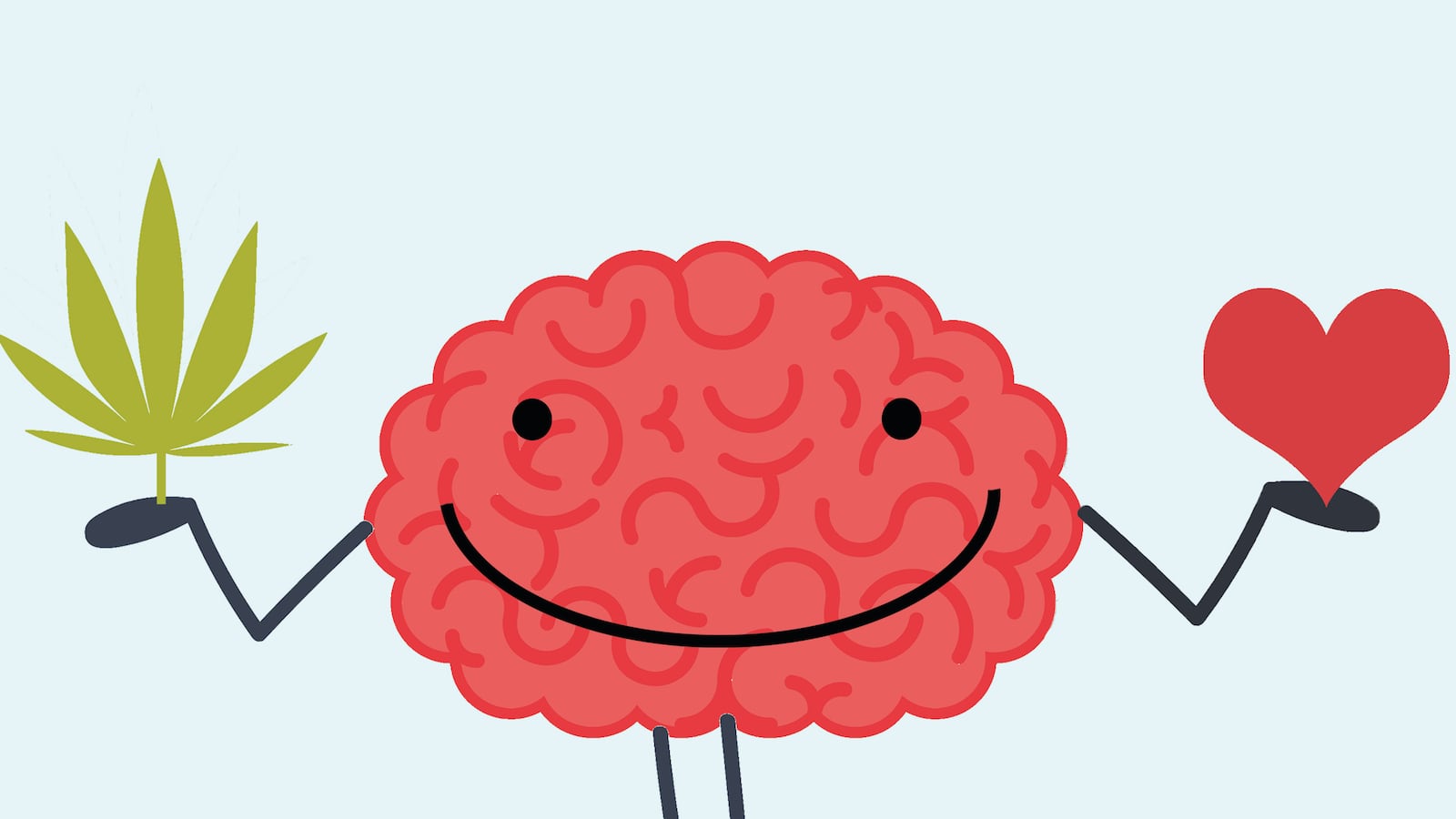What happens when “love hormones” and “bliss molecules” collide? A whole lot of happy akin to smoking a joint, a new study suggests. Researchers at the University of California, Irvine (UCI) found that oxytocin—often dubbed the “love hormone” due to the good feelings it produces during social interactions—is able to enhance pleasure by stimulating the brain’s marijuana-like cannabinoid neurotransmitters.
“Why do social animals—us included—enjoy the company of their own species? Our study addresses this question from a neurobiological perspective,” explains Daniele Piomelli, the paper’s lead author.
It is the first piece of research to establish the link between oyxtocin and anandamide, the “bliss molecule.” UCI’s researchers conducted their study on mice, analyzing those that had been allowed to interact with others, and others that had been isolated.
“We describe a neural mechanism [in the paper] that reinforces social contact: this mechanism is localized to a specific area of the brain (the nucleus accumbens) and involves two main players,” Piomelli says of their findings. “The small protein oxytocin, which is produced by neurons of the hypothalamus, stimulates the formation of a molecule called anandamide, which enhances the pleasure of social interactions by combining with the same receptor recognized by the active ingredient of marijuana.”
With a research focus on autism—a lack of interest in social contact is a “vital sign” of the condition—the results highlight the possibility of blocking anandamide degradation and creating an oxytocin boost designed to facilitate personal interactions. The hormone’s role in improving this aspect of autism has also led to the creation of an oxytocin nasal spray. A small Australian study published this week found that its participants—children aged 3 to 8—saw major developments in their ability to socialize during five weeks of using the spray, further suggesting that the love hormone’s properties can have a major impact.
And this isn’t the first time oxytocin has been found at the heart of a medical discovery. The peptide, which is produced by humans and other mammals, is released during childbirth and breastfeeding as well as during sex, with high levels of it observed in new couples. With a greater rate of oxytocin usually detected in women, the cuddle chemical is often cited as a reason for women forming greater attachments to men after casual intimacy, but this isn’t an excuse to dole out clichés about Casanovas and their sentimental conquests: One study found that oxytocin actually helps to keep men monogamous. After a little spritz of the stuff, participants viewed pictures of their partners and found that the brain’s pleasure centers were activated and their sense of attraction renewed (although the most effective means of keeping the spark alive is, in fact, good old-fashioned communication).
Other studies have found that oxytocin could boost self-esteem and the sense of control one has over their life, as well as reduce a person’s penchant for snacking.
It has also been cited as a means of making marmoset monkeys more affectionate and attentive to one another, proving that the hormone’s benefits just keep on coming.






